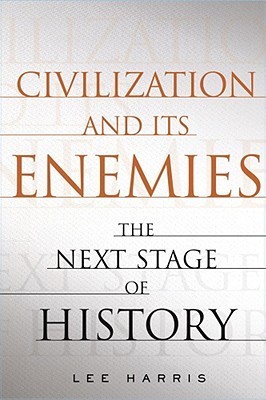What do you think?
Rate this book


256 pages, Hardcover
First published February 3, 2004
"This book is far away from the boilerplate rhetoric generally found in right-wing polemics. Harris comes across as a classicist, philosopher, and historian.
We in the West have been civilized and safe for so long that we have forgotten the concept of "the enemy". The enemy is a threat to our survival. It is a mistake to see the enemy as a rational actor. The enemy hates us for reasons that are not based on reality, but on fantasy. Therefore we cannot reason with the enemy, and must instead use force to stop him.
It is a mistake to confuse ruthlessness with desperation. Lee Harris says that ruthlessness has no root causes. In order to combat ruthlessness, we must be ruthless ourselves. Not the reason of the Enlightenment, but courage, loyalty and a code of honor are what is needed to defeat the ruthlessness of the enemy.
The enemy is motivated by fantasy. Mussolini had the fantasy of reviving the Roman Empire. Hitler had the fantasy of reviving German paganism. The jihadists have the fantasy of reviving the glory days of Islam.
The Muslims believe that the fall of the World Trade Center in 2001 proved that Allah favors the Muslims. Similarly, the Gulf Arabs believe that the huge oil revenues they have received proved that Allah loves them."